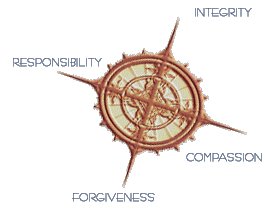LENT
By Mike Sweeney
The word “Lent” means spring. Webster’s Dictionary defines Lent as, “The period of forty days, excluding Sundays, of fasting and penitence observed by many Christians from Ash Wednesday until Easter. The forty days come from the period Jesus spent in the desert after his baptism by John. In St. Matthew’s Gospel 4: 1-2, Then Jesus was led by the Spirit into the desert to be tempted by the devil. He fasted for forty days and forty nights, and afterwards he was hungry.
The Lenten season begins on Ash Wednesday. The ashes are from last year’s palm branches (blessed on Palm Sunday, the Sunday before Easter), that were burned this year. The priest makes the sign of the cross on your forehead with the ashes and says, “Remember you are dust and to dust you will return” (from Genesis 3:19), or “Turn away from sin and be faithful to the gospel (from Mark 1:15). This reminds us of our earthly mortality, the need to repent for our sins, and encourages us to strive for eternal life (salvation).
Catholics observe the Lenten season in a variety of ways as they prepare for the celebration of the Resurrection of Jesus Christ on Easter Sunday. First and foremost, Lent is a time of penitence. Penitence is the feeling of remorse for one’s sins. Lent is a time to reflect on, or examine one’s conscience for sins that need to be forgiven. It is also a time to look honestly at bad habits or behaviors that need changing.
Once we have examined our consciences, the Church asks us to go to a priest and receive the Sacrament of Confession (also known as Reconciliation). In St. John’s Gospel 20: 21-23, Jesus appeared to the Apostles in the upper room after the Resurrection. Jesus said to them again, “Peace be with you. As the Father has sent me, so I send you.” And when he had said this, he breathed on them and said to them, “Receive the holy Spirit. Whose sins you forgive are forgiven them, and whose sins you retain are retained.” By doing so, Jesus empowered his Apostles with the Sacrament of Confession. Through Apostolic succession, the priest can give the Sacrament of Confession today.
Lent is a time of self-sacrifice. The Church asks that we fast on Ash Wednesday and Good Friday, and that we abstain from meat on Ash Wednesday and all Fridays during Lent. The law of fasting allows for one full meal a day, but does not prohibit taking some food in the morning and evening. The law of abstinence forbids the use of meat. In the time of Christ, a simple meal would have been bread and fish. Meat was considered a luxury. It was often served during celebrations. In St. Luke’s Gospel 15: 23-24, Jesus was talking of the Prodigal Son’s return to his father, and his father’s response. “Take the fattened calf and slaughter it. Then let us celebrate with a feast, because this son of mine was dead, and has come to life again; he was lost, and has been found. Then the celebration began.” We abstain from meat in memory of the passion and death of our Savior, who died on Good Friday. Abstinence applies to those who have completed their 14th year of age. Fasting applies to those who have completed their 18th year of age until the beginning of their 60th year. Exceptions are given to those who are sick, who are involved in extremely hard work, and to the poor who have to rely on whatever sustenance they can get.
Often, one will offer up additional sacrifices such as “giving up” sweets or other luxuries during Lent. I like to tell friends I am giving up Brussels sprouts! Seriously, though, we may want to dig a little deeper and change a harmful habit such as smoking or gossiping, etc. While these sacrifices pale in comparison to Christ’s, they serve to unite us with the suffering and ultimate sacrifice He endured for our sins. May this Lent bring us all closer to the one Triune God.
Subscribe to:
Post Comments (Atom)



1 comment:
When you get this, give me a call...I'd like to chat a bit.
Post a Comment